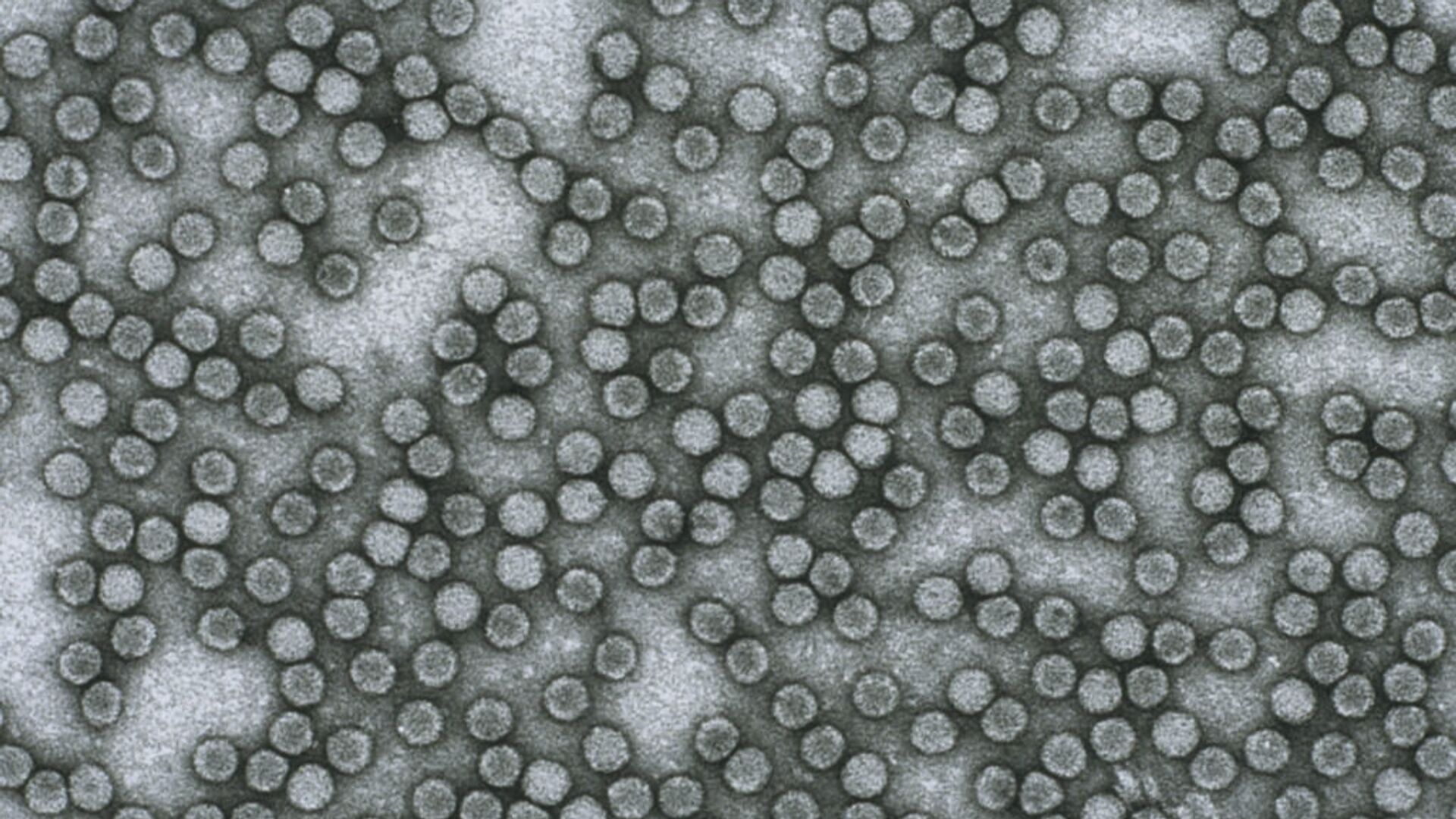https://sputnikglobe.com/20220616/six-areas-in-indias-kolkata-being-monitored-after-detection-of-polio-virus-1096362189.html
Six Areas in India's Kolkata Being Monitored After Detection of Polio Virus
Six Areas in India's Kolkata Being Monitored After Detection of Polio Virus
Sputnik International
In 2014, the Word Health Organisation (WHO) declared India a polio-free nation. The last case of polio in Kolkata, West Bengal, was detected in 2011. 16.06.2022, Sputnik International
2022-06-16T10:46+0000
2022-06-16T10:46+0000
2023-02-14T12:21+0000
polio
water pollution
water
contaminated sites
world health organization (who)
west bengal
virus
https://cdn1.img.sputnikglobe.com/img/102661/11/1026611190_0:54:1025:630_1920x0_80_0_0_92261d35ea7a34a3c74e5b02a104b257.jpg
Polio has been detected in the sewage water of six pockets of Kolkata, West Bengal, raising concerns among health organisations and municipal bodies in India. Officials of the World Health Organization's (WHO) eastern regional office and Kolkata Municipal Corporation (KMC) are monitoring six small areas of the city to detect the polio virus on the basis of certain parameters, including improper gutter sewerage facilities and a high rate of open defecation tendencies, among others.The six pockets where the polio virus has been detected include Metiabruz, Shyamlal Lane, the World Vision School area, Dhapa Lockgate, Maheshtala and Narkeldanga.The initial investigation indicates two possible reasons for the existence of the polio virus in the sewage waters: first, the possibility of the stool of any polio-affected person getting mixed with gutter water, and second, the possibility of the polio vaccine getting mixed with the same water. While the KMC authorities are investigating and trying to identify whether there are any polio-affected victims in the areas, all the state-run medical colleges and hospitals have been instructed to conduct stool tests of all children admitted there with an immune deficiency.The state health department has also identified certain districts in Kolkata where special polio-vaccination drives will be carried out starting 19 June. These districts include Howrah, Hooghly, South 24 Parganas, North 24 Parganas, North Dinajpur, Malda and Murshidabad.
west bengal
Sputnik International
feedback@sputniknews.com
+74956456601
MIA „Rosiya Segodnya“
2022
Sangeeta Yadav
https://cdn1.img.sputnikglobe.com/img/07e4/08/1b/1080292803_0:121:960:1081_100x100_80_0_0_7490b319dab9611e309056b177265184.jpg
Sangeeta Yadav
https://cdn1.img.sputnikglobe.com/img/07e4/08/1b/1080292803_0:121:960:1081_100x100_80_0_0_7490b319dab9611e309056b177265184.jpg
News
en_EN
Sputnik International
feedback@sputniknews.com
+74956456601
MIA „Rosiya Segodnya“
Sputnik International
feedback@sputniknews.com
+74956456601
MIA „Rosiya Segodnya“
Sangeeta Yadav
https://cdn1.img.sputnikglobe.com/img/07e4/08/1b/1080292803_0:121:960:1081_100x100_80_0_0_7490b319dab9611e309056b177265184.jpg
polio, water pollution, water, contaminated sites, world health organization (who), west bengal, virus
polio, water pollution, water, contaminated sites, world health organization (who), west bengal, virus
Six Areas in India's Kolkata Being Monitored After Detection of Polio Virus
10:46 GMT 16.06.2022 (Updated: 12:21 GMT 14.02.2023) In 2014, the Word Health Organisation (WHO) declared India a polio-free nation. The last case of polio in Kolkata, West Bengal, was detected in 2011.
Polio has been detected in the sewage water of six pockets of Kolkata, West Bengal, raising concerns among health organisations and municipal bodies in India.
Officials of the World Health Organization's (WHO) eastern regional office and Kolkata Municipal Corporation (KMC) are monitoring six small areas of the city to detect the polio virus on the basis of certain parameters, including improper gutter sewerage facilities and a high rate of open defecation tendencies, among others.
The six pockets where the polio virus has been detected include Metiabruz, Shyamlal Lane, the World Vision School area, Dhapa Lockgate, Maheshtala and Narkeldanga.
The initial investigation indicates two possible reasons for the existence of the polio virus in the sewage waters: first, the possibility of the stool of any polio-affected person getting mixed with gutter water, and second, the possibility of the polio vaccine getting mixed with the same water.
While the KMC authorities are investigating and trying to identify whether there are any polio-affected victims in the areas, all the state-run medical colleges and hospitals have been instructed to conduct stool tests of all children admitted there with an immune deficiency.
The state health department has also identified certain districts in Kolkata where special polio-vaccination drives will be carried out starting 19 June. These districts include Howrah, Hooghly, South 24 Parganas, North 24 Parganas, North Dinajpur, Malda and Murshidabad.




